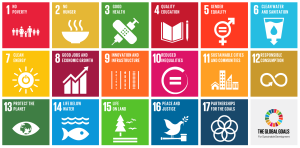 The centrality of women’s empowerment, gender equality and the realization of women’s human rights in achieving sustainable development have been increasingly recognized in recent decades. The recognition is evident in a number of international norms and agreements. The Beijing Declaration of Action provides that the advancement of women and the achievement of equality between women and men are a matter of human rights and a condition for social justice and are the only way to build a sustainable, just and developed society.
The centrality of women’s empowerment, gender equality and the realization of women’s human rights in achieving sustainable development have been increasingly recognized in recent decades. The recognition is evident in a number of international norms and agreements. The Beijing Declaration of Action provides that the advancement of women and the achievement of equality between women and men are a matter of human rights and a condition for social justice and are the only way to build a sustainable, just and developed society.
The outcome document Transforming our world: the 2030 Agenda for Sustainable Development agreed to by Member states in the Post-2015 Development Summit,
which took place in New York in September 2015 also acknowledges throughout the preamble and the Declaration that achieving women’s empowerment, gender equality and women’s human rights are a prerequisite for sustainable development.
The Sustainable Development Goals are a vast improvement on the Millennium Development Goals, which were essentially a pact between donor and developing countries. The new goals are universally applicable, tackling poverty and deprivation everywhere, leaving nobody behind and holding all countries responsible for taking action. The Sustainable Development Goals are more equality sensible with more cross-cutting commitments to gender equality and a stand-alone goal dedicated to gender equality and the empowerment of all women and girls. However, the 2030 Agenda fails to lay out a comprehensive human rights based approach for sustainable development. It also fails to recognize the need for a women’s rights based analysis incorporated in the Sustainable Development Goals.
On the one hand women’s empowerment needs the building of an enabling environment for the implementation of women’s human rights. On the other hand it needs the enhancement of women’s skills and capacities as active agents of change for sustainable development. However, in the 2030 Agenda, sustainable development goals, targets and means of implementation do not address systemic imbalances, systemic discrimination and structural inequalities that deny the basic human rights of women and girls. Therefore, the 2030 Agenda does not contribute sufficiently to the creation of such an enabling environment.


